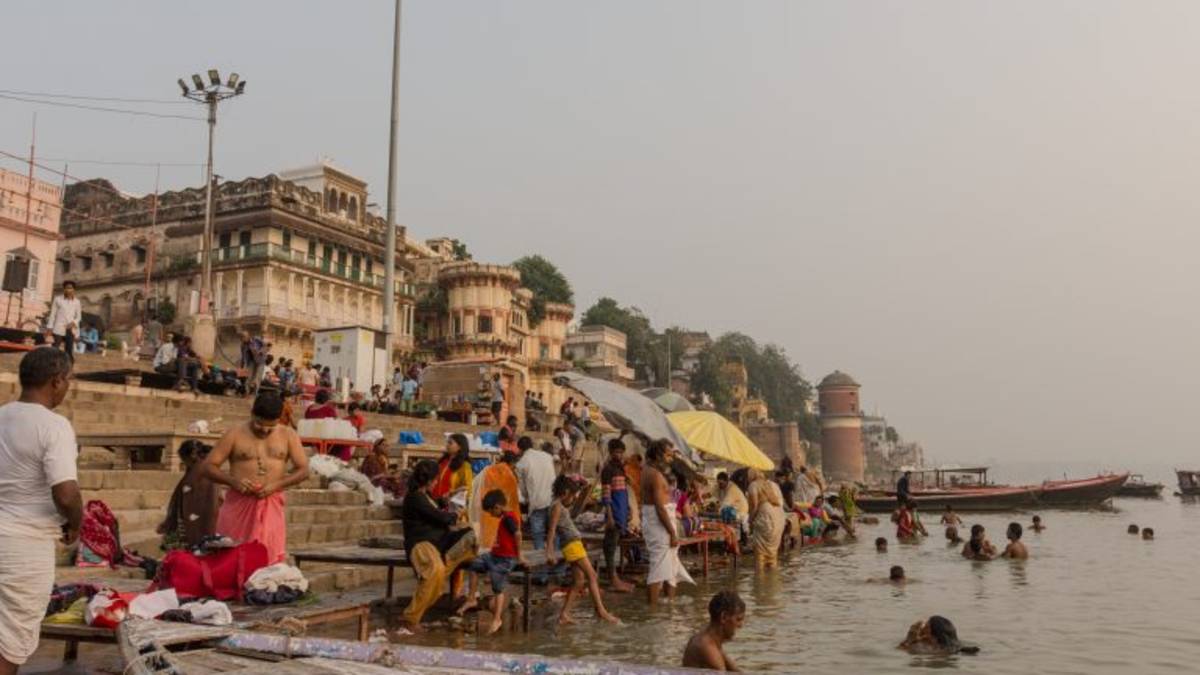11 Dec 2024

Tired Earth
By The Editorial Board

Delhi-based NGO Toxics Link released a study this week titled, “Quantitative analysis of Microplastics along River Ganga”, which has found that the river – which flows through five states covering about 2,500 km before flowing into the Bay of Bengal – is heavily polluted with microplastics.
Among the range of plastic debris that is found in water bodies, microplastics are the most notorious because of their small size, on average microplastics are less than 5 mm in length or roughly equal to five pinheads.
Apart from humans, microplastics are harmful to marine species as well. More than 663 marine species are affected by marine debris and 11 percent of them are said to be related to microplastic ingestion, the study says. Because microplastics are so small, they are ingested by marine habitants including fish, corals, planktons and sea mammals and are then carried further into the food chain. In the case of humans, most of the microplastics can be found in food, water and food containers and their ingestion can cause health problems.
For the study, samples of Ganga’s water were collected from Haridwar, Kanpur and Varanasi and microplastics were found in all of them. Apart from microplastics, there were other kinds of plastics as well such as single-use plastic and secondary plastic products. Of the samples, those taken at Varanasi had the highest concentration of plastic pollution.
Further, the study notes that untreated sewage from densely populated cities across the river’s course, along with industrial waste and religious offerings that are wrapped in non-degradable plastic add a significant amount of pollutants into the river. As the river flows, these waste and plastic materials break down further and are eventually carried into the Bay of Bengal and then into the ocean which is the “ultimate sink”of all plastics that are used by humans.
“Essentially all along microplastics are flowing into the river system. It does reflect or suggest a direct linkage between the poor state of both solid and liquid waste management; hence it is critically important to initiate steps to remediate it,” Priti Mahesh, Chief Coordinator at Toxics Link was quoted as saying in a statement.
Ganga has the largest river basin in terms of catchment area in the country and constitutes about 26 percent of India’s landmass spread across 11 states, which supports 43 percent of the population.
That the holy river Ganga is polluted is not a recent discovery, in fact, efforts to clean it have been ongoing for over 40 years. Most of them have focussed on creating sewage treatment capacities in the major urban centres along the river.
In May 2015, the government approved the Namami Gange (which receives a 100 percent funding from the central government) programme to clean and protect the river. Programmes launched before this include the Ganga Action Plan (GAP) in 1985, the IIT Consortium (2011) for water diversion and effective treatment, and the National Mission for Clean Ganga in 2011.
However, the Toxics Link study says that not only do none of these plans address pollution caused by microplastics but even otherwise these programs and schemes launched over the past decades on which millions of rupees have been spent so far, have yielded “little success”.
Source : indianexpress.com
Comment